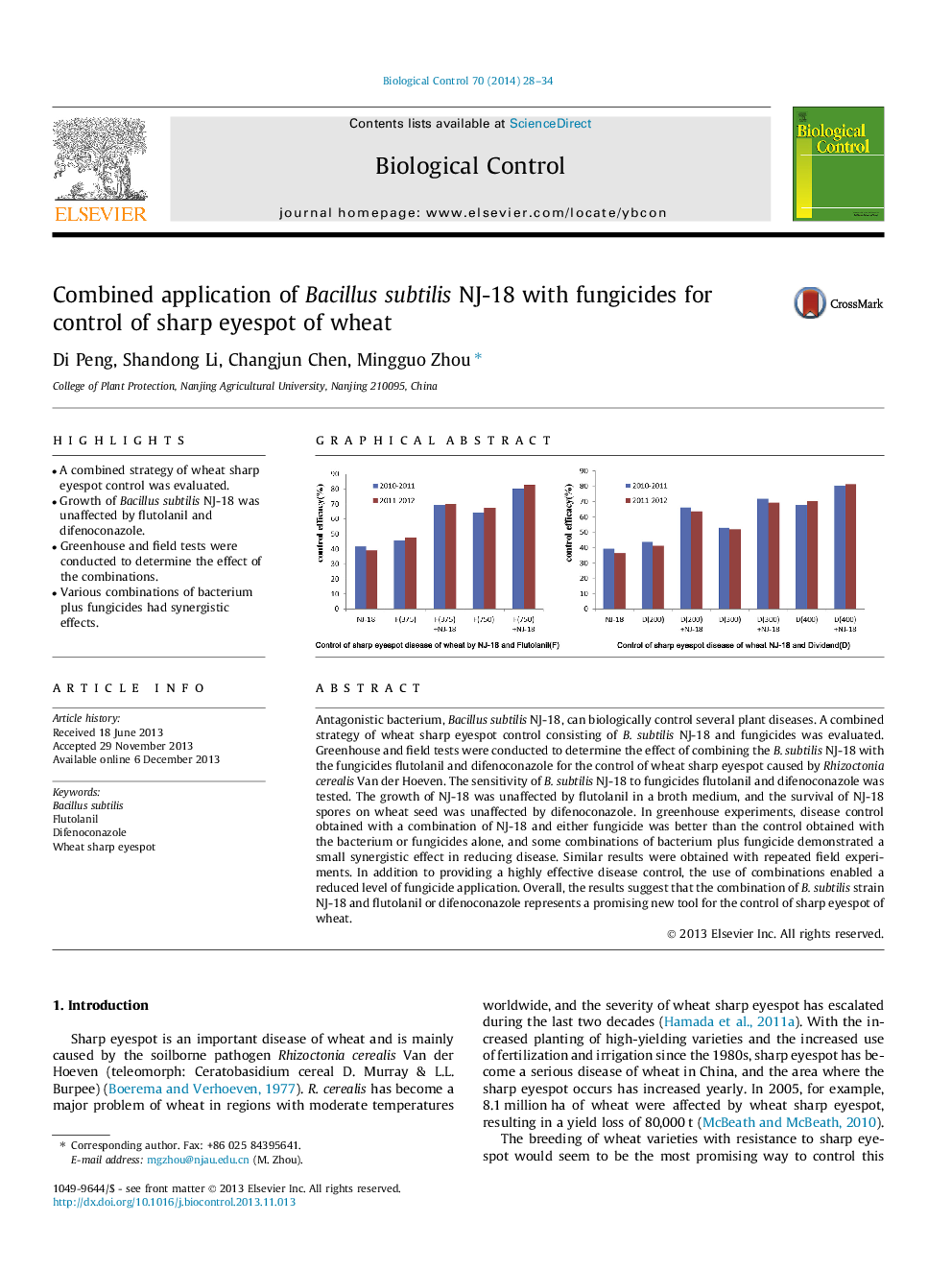| Article ID | Journal | Published Year | Pages | File Type |
|---|---|---|---|---|
| 4503930 | Biological Control | 2014 | 7 Pages |
•A combined strategy of wheat sharp eyespot control was evaluated.•Growth of Bacillus subtilis NJ-18 was unaffected by flutolanil and difenoconazole.•Greenhouse and field tests were conducted to determine the effect of the combinations.•Various combinations of bacterium plus fungicides had synergistic effects.
Antagonistic bacterium, Bacillus subtilis NJ-18, can biologically control several plant diseases. A combined strategy of wheat sharp eyespot control consisting of B. subtilis NJ-18 and fungicides was evaluated. Greenhouse and field tests were conducted to determine the effect of combining the B. subtilis NJ-18 with the fungicides flutolanil and difenoconazole for the control of wheat sharp eyespot caused by Rhizoctonia cerealis Van der Hoeven. The sensitivity of B. subtilis NJ-18 to fungicides flutolanil and difenoconazole was tested. The growth of NJ-18 was unaffected by flutolanil in a broth medium, and the survival of NJ-18 spores on wheat seed was unaffected by difenoconazole. In greenhouse experiments, disease control obtained with a combination of NJ-18 and either fungicide was better than the control obtained with the bacterium or fungicides alone, and some combinations of bacterium plus fungicide demonstrated a small synergistic effect in reducing disease. Similar results were obtained with repeated field experiments. In addition to providing a highly effective disease control, the use of combinations enabled a reduced level of fungicide application. Overall, the results suggest that the combination of B. subtilis strain NJ-18 and flutolanil or difenoconazole represents a promising new tool for the control of sharp eyespot of wheat.
Graphical abstractFigure optionsDownload full-size imageDownload as PowerPoint slide
